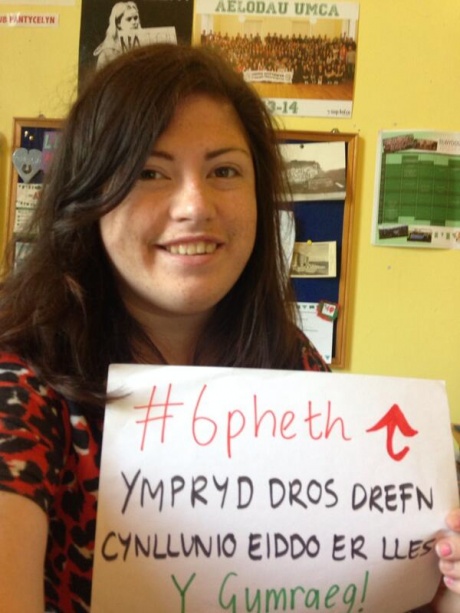Leading Welsh musicians have backed calls to abolish national housing targets in order to strengthen the Welsh language at a community level, Cymdeithas yr Iaith Gymraeg have announced today.
Among the eleven musicians who have stated their wish to move to a system that puts local needs at the centre of the system are the entertainer Dewi Pws Morris, the singer in the band Clatshobant Delyth Wyn, and members of the legendary rock group Edward H Dafis, Cleif Harpwood from Port Talbot, and Caernarfon’s Hefin Elis.
The musicians have signed a Cymdeithas yr Iaith statement calling for planning legislation which would base the system on local needs rather than nationally-set housing targets, ensure the impact of developments on the Welsh language are assessed, and give legal power to councillors to approve or reject plans based on their language impact.
Announcing his support for the campaign, Dewi Pws Morris who lives in Tresaith, Ceredigion commented: “I agree hundred percent with Cymdeithas about this. There needs to be a change to the whole planning system so the language can grow as a community language instead of declining. There’s no point getting some superficial fix which doesn’t get to the heart of the problem, which is the fact that the system knows the price of everything but the value of nothing. That’s why local community needs should be the focus of this new legilsation, instead of serving rich people from outside. It’s about time old Carwyn woke up from his deep sleep on all of this.”
The news comes after the Welsh Government published a draft bill that doesn’t include a single reference to the Welsh language. Last week, tens of the language group’s members went on a 24 hour hunger strike for changes to the legislation. Toni Schiavone, Cymdeithas yr Iaith Gymraeg Sustainable Communities’ spokesperson commented: “I’m pleased there’s so much support for our calls. The statement, which is based on our alternative legislative proposals as a group, attempts to put the interests of communities first in order to tackle poverty as well as problems which face the language and the environment. The Welsh Government has the chance to show they’re serious about ensuring a future for Welsh speaking communities and people’s ability to live in Welsh. It’s essential the Welsh language is made a statutory consideration in planning, so the language thrives over the years to come.”
“We’re calling for a transformation of the planning system as part of the six policy changes which are needed in order to deal with the crisis shown by the Census. Earlier this year, we published an alternative Planning Bill, and the statement we have released today summarises its main proposals. We will be collecting more names supporting the statement over the next months and present them to the Government.”
A large number of housing developments have been in the news recently because of their effect on the language, such as planning applications for housing in Penybanc, Bethesda and Bodelwyddan. The number of communities where more than 70% of the population speaks Welsh has seriously declined over the last twenty years, from 92 in 1991 to 39 in 2011.
Cymdeithas yr Iaith is holding a series of public meetings to discuss its alternative Planning Bill and is inviting comments on its proposals until the end of the National Eisteddfod week in August.
